DAISY SAVAGE, HEAD OF UPPER SCHOOL: We humans have an interesting relationship with time. The way we view time and its passage depends very much upon our age. The same is true for our embrace of tradition. For those of us in the business of adolescence, we know that, for them, time can not move fast enough: our young students rush to embrace the newness and challenge of each new stage, in search of both a license to drive and in search of a license to live.
We humans have an interesting relationship with time.
We urge them to slow down, seize the moment, and they scoff and strive forward, pressing hard against the traces of our rules and traditions. They seek their own truth and their own way. Tradition belongs to someone else’s vision... Until suddenly, they see their own legacy in the wake they leave behind. And then the nature of time changes.
Even as it seems to be whizzing by, one of the nice things about a school year is that we amass evidence of the time passing with lesson units and quizzes and essays and other such efforts.
Our time is both linear and circular.
By month, we mark our students’ progress through the adolescent continuum – for example, we know that every November is an anxious time for the grade 8's as they work to lead the school and maintain high academic standards. January brings a challenge to 6th graders negotiating new relationships as they work to define who they are and where they fit. We mark each individual student's progress through each grade with every project and signature event. These achievements grow slowly and steadily, and at Peck we collect their best work and literally bind it into a book at the end of the year. Our tradition of the “bound book” is a testament to passage, measuring not only the volume but also the grasp of skills and understanding.
Wandering through classrooms on any given day, we bear witness to time and tradition. 5th graders, having completed their major gods quiz, now create their own myths. Each student is imbuing a time-honored tradition with his or her own creativity and unique perspective, and in so doing, subtly changing it. The 6th graders attack the essential questions raised by Roll of Thunder, Hear My Cry: what are the obstacles that prevent us from standing up for what is right, and how do we overcome them now and in the future? 7th graders travel to a Venezuelan restaurant to try out their Spanish accents and taste new food even as they begin to understand their own local community knows few borders. 8th graders complete an essay on A Separate Peace as they tackle the meaning of friendship and the knowledge that soon they will soon leave our orbit to rotate in a much larger galaxy.
Although some years bring big announcements and change, for the most part, school and the educational process are a day-by-day, brick-by-brick enterprise. We are building – slowly, carefully, and thoughtfully - for the future. We use our knowledge of children, their development, and human character to forge a rock solid foundation. We are graduating 13-year olds but what we are truly doing is creating the framework for the 35-year olds they will eventually become.
We are graduating 13-year olds but what we are truly doing is creating the framework for the 35-year olds they will eventually become.
Too often, we forget what a long and steady process it is that brings us to whatever stage of knowledge or understanding we're currently experiencing. We can rush our students through the days’ events and activities, forgetting that so much of what we feel today is connected to what happened yesterday and the day before...and so on. And so much of what we experience depends on so many other pieces falling into place first, pieces that may be completely beyond our view or control or even awareness.
This is information we must pass onto our students, even as they try to wriggle out of our grasp. Time will pass, life will change, and then they will come to understand the role tradition plays in their own lives. They will come to understand that they share a past with those who went before and also those who lie ahead, and those traditions tie us to one another in the same way that our dreams do. We are all at our best when we are timeless.
Recently, the poet Richard Blanco read his poem, “Matters of the Sea” (Cosas del Mar), as the American flag was raised and the US Embassy in Havana reopened after 54 years. It has obvious connections to the moment, but also speaks more broadly to shared human history – in short, the role each of us has to play in making history even as we barrel through time joined together by dreams and, yes, traditions.
The sea doesn’t matter
What matters is this
We all belong to the sea between us, all of us
Once and still the same child
Who marvels over starfish
Listens to hollow shells
Sculpts dreams into impossible sand castles





